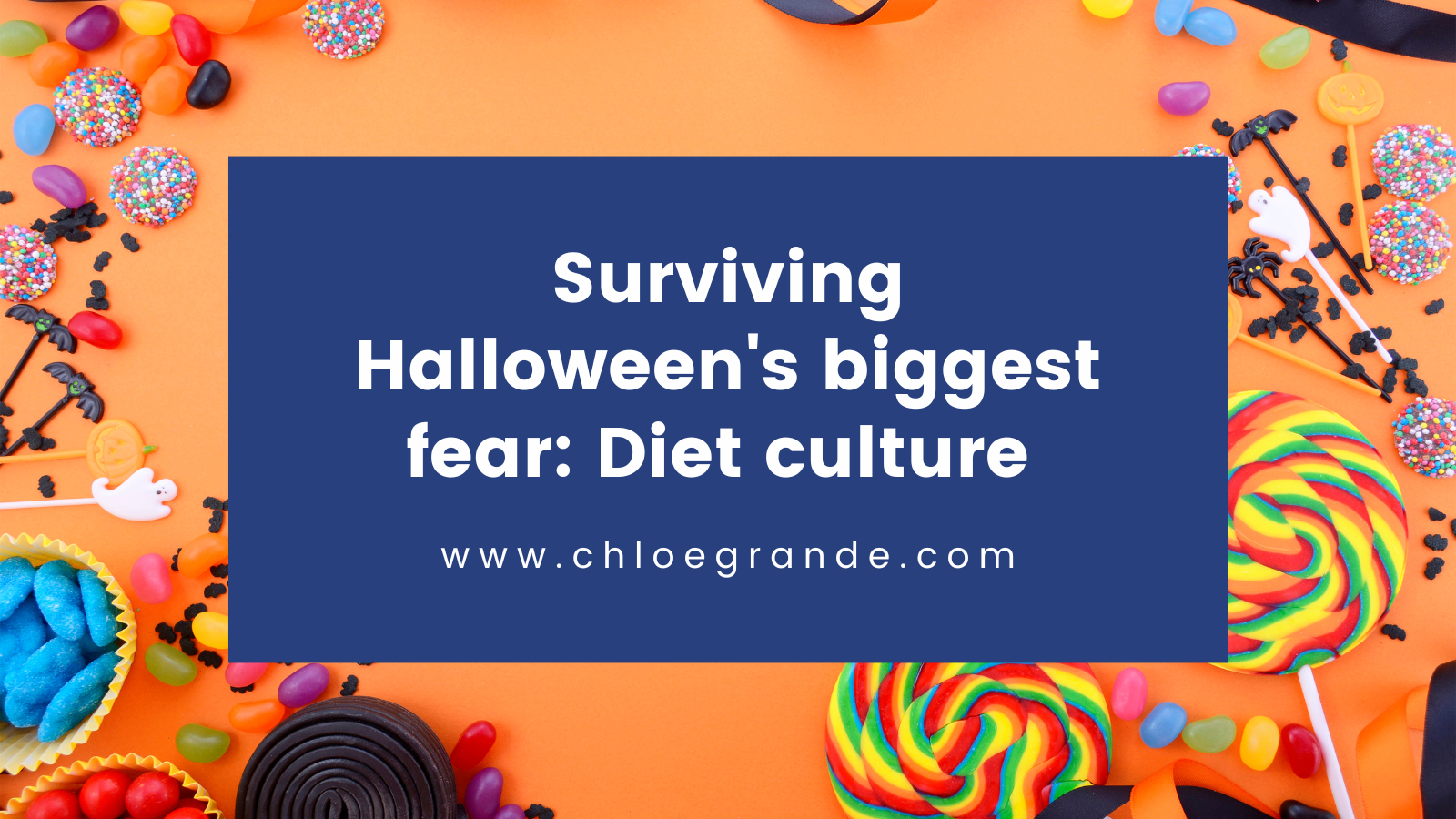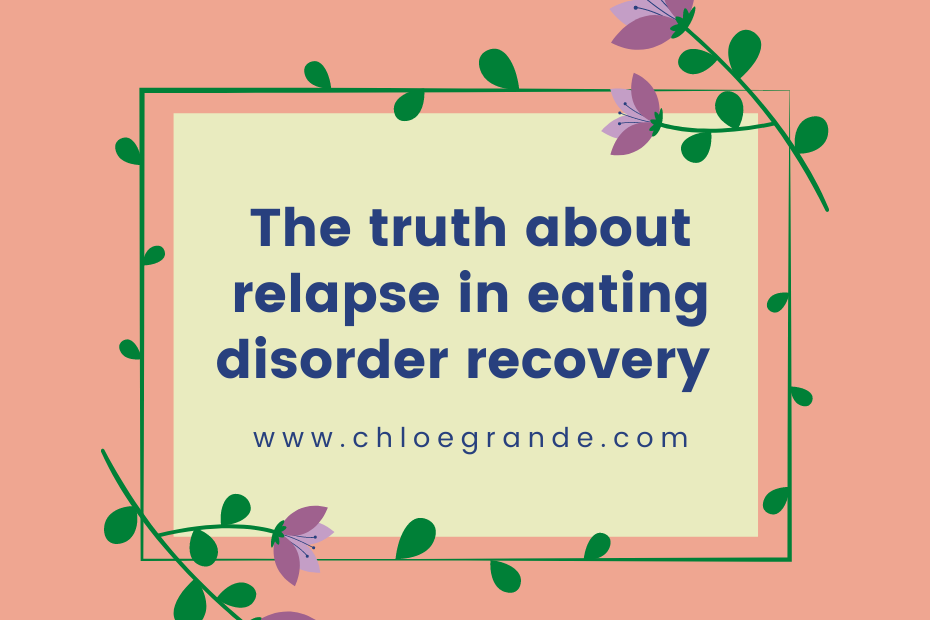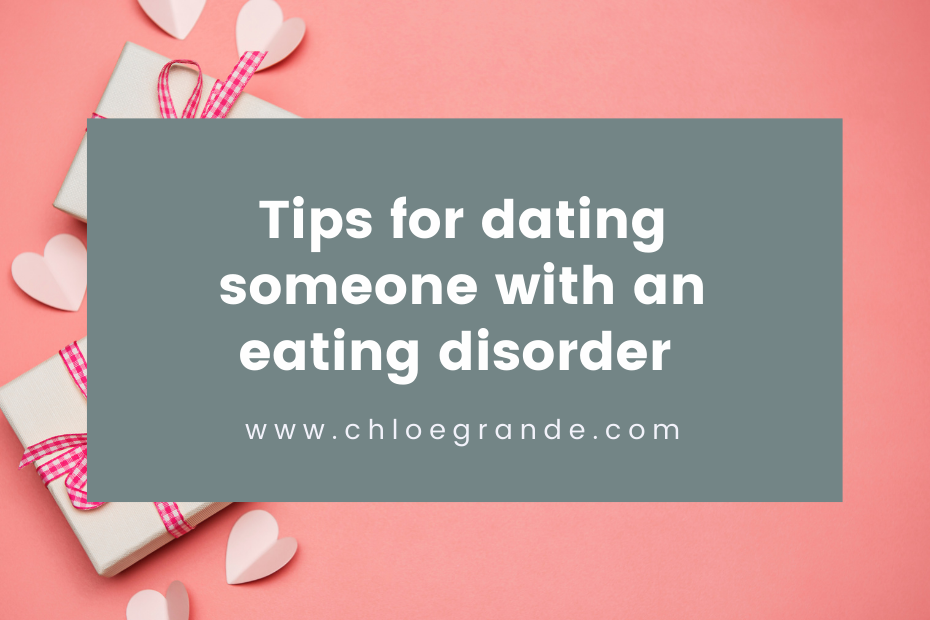Although I still occasionally get mistaken for a college student, it’s been a good ten-ish years since I was a first-year student in university.
I remember feeling very excited and a bit nervous after moving to campus. I was eager to make new friends, live away from home and experience the so-called “best four years” of my life. But on the inside, I was still clinging onto a lot of lingering eating disorder behaviour, like body-checking and restricting.
It wouldn’t be long after Frosh Week — when the excitement of back-to-school festivities died down — that I’d begin to slowly slide into a full-blown eating disorder relapse. I’ve since learned that eating disorder onset or relapse is common for university students, due to all the major life changes and stressors happening at once. It makes sense — and it’s also preventable.
With the insight I have now about body image and disordered eating in postsecondary school students, here are the things I’d go back and tell myself in first-year university.

What I wish I knew in first-year
1. Go at your own pace
I was the type of high school student who had a different extracurricular activity scheduled every day. I wanted to keep this momentum going in university, despite soon realizing that the workload was much, much heavier than what I’d been used to. No longer could I whip together a last-minute, A-level essay.
On top of the academic stress of university, my eating disorder drained every last bit of energy. My brain was literally starving. Looking back, I could have spoken to my doctor to get a medical note for assignment extensions or even gotten support from profs/TAs. A reduced course load could have freed up time for me to focus on beating the eating disorder, rather than having it consume me.
2. Peer support for mental health exists
For years, I’d walk by the Peer Support Centre on campus and never once thought of entering. Although I felt so alone with my eating disorder, the self-stigma made it really hard for me to talk about my mental illness with anyone outside of healthcare professionals and my family. I’m sure the trained Peer Support students would have provided the compassionate, judgement-free reassurance I desperately needed.
There’s something so special about connecting with others who can relate to what you’ve gone through, even if it’s simply acknowledging how challenging recovery can be. (And that’s part of the reason why I’m now a certified Peer Mentor with Eating Disorders Nova Scotia!)

3. Change is really hard
Whenever I’d log onto Facebook, I’d be met with photo albums of smiling faces, red solo cups, campus sweaters and pep rallies. It seemed like everyone was having the BEST time away at university. Then I’d see those same faces around campus, looking much more exhausted and stressed out.
If I had recognized that others were struggling just as much as me with the transition to university, I could have approached my mental health with more compassion and kindness. Instead, I beat myself up for all my (understandable!) feelings of confusion, loneliness and loss.

4. It’s okay to have second thoughts
I had a vision that my university experience would be a beeline to a nice degree, respectable job, shiny future, etc. However, as classes ramped up and pressures grew, there were so many doubts plaguing my mind: was this school the right fit for me? What will I do after graduation? Do I even like studying English literature?
Being an Arts student at a STEM-focused school made me feel even more unworthy, like my time would be wasted on this degree. I’d encourage my younger self to be more flexible — take classes outside of my comfort zone, let go of my sky-high expectations and trust that things would work out. (Spoiler alert: they usually do!)
5. The “Freshmen 15” is B.S.
Apparently, this ridiculous belief that weight gain is inevitable when starting university started with an article in Seventeen magazine (which I used to read religiously). This idea is so engrained in our culture that versions of it were even used at the beginning of the pandemic — remember the “Covid-15?”
Anxiety about weight gain serves no purpose besides creating an environment of fear and shame around food. Our bodies fluctuate and change during different periods of life. You aren’t meant to fit into your high school clothes forever. Besides which, you’re worth so much more than a clothing size.

I’ve been feeling more nostalgic than usual this fall because I’m visiting campuses around Ontario — Toronto Metropolitan University, Queen’s and Western — to speak about my own lived experience relapsing with my eating disorder in first-year university.
As I’ve prepared my talks, I’ve browsed through old Facebook photos and journal entries to put myself back in 2011. One glaring thing was missing. Never once did any of my first-year Orientation activities or campus events address mental illness, and especially not eating disorders. My younger self would be in awe of how comfortable I am now talking about my eating disorder.
I’ll keep talking and writing and blogging about it because there’s no shame in having an eating disorder in first-year university. They’re more common than we think. And individuals with eating disorders are much stronger than they believe. Trust me, I’ve been there and come out the other side.





I love love love your perspective and love reading your blog so much! I like what you said about the freshman 15 and how this idea creates shame around food and creates a sense of fear that’s totally not necessary! And I totally agree about the value of peer support! It can be scary to try something like that out, but the support potential is unmatched!
Aw, thanks so much Skye for this lovely comment! It made my day! Can’t believe we’re still talking about the Freshmen 15 … I sincerely hope we can get to a point where we can be okay with bodies changing and growing, instead of further triggering disordered eating and eating disorders. And I’m glad that you also feel that peer support has so much potential. It’s definitely a game-changer!
Just want to say i’m glad you pulled thru it. I have no idea what an eating disorder even is, but I can assure you that the stress of university really cut a swath through the people I knew, and for myself, I was barely able to make it thru fourth year, I was completely burned out.
Thank you for the kind words of support! Sorry to hear that you also had a stressful time in school. Eating disorders can be really debilitating mental illnesses that impact every aspect of a student’s life. University is hard enough as it is, as I’m sure you can understand. I’m also glad I was able to get the supports I needed to make it through. There’s no shame in asking for help 🙂
What an amazing post, Chloe!!
Can’t wait to talk more about it with you <3
Thanks so much!